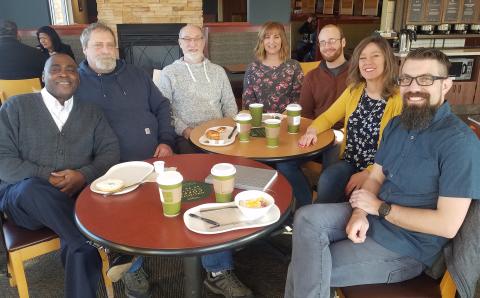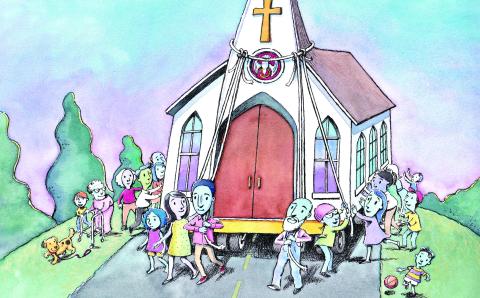I was talking with some senior members of my church the other day. They had been asked to give a talk to our high school youth group about their faith journeys. I pointed out that all of the youth they were talking to were born after Sept. 11, 2001, in a time of the internet, social media, Netflix, and cellphones. I suggested that they compare their own teenage years to those of today’s youth, explaining similarities and differences.
Immediately this generated a lot of discussion. Almost all the seniors had grown up in rural areas in the 1940s and ’50s. The discussion turned to their lives without running water, electricity, or phones, and to one-room schoolhouses, outhouses, and riding to church and school in horse-drawn wagons.
I asked them what they thought of the differences they witnessed in the practice of their own Christian faith over the past 50 years and how that might compare with the practice of the Christian faith these young people will face 50 years from now.
This brought about a sobering silence. Many of them actually shook their heads at the very thought of it. Several said they couldn’t even imagine what the world would be like and what that would mean for these kids in maintaining, let alone practicing, their Christian faith in the future.
I mentioned that the apostle Paul had a similar experience in his apostolic ministry to the Gentiles. After all, he did practice his faith in a Greek world that was very different from his own Jewish background and mostly hostile to what he preached and believed. Paul explained his ministry strategy in 1 Corinthians 9:22-23: “I have become all things to all people so that by all possible means I might save some. I do all this for the sake of the gospel, that I may share in its blessings.”
On the other hand, in John 17:14-19, Jesus says his disciples are to be in the world but not of the world. In other words, even though we need to be all things to all people, relevant to the world around us, we are nevertheless called to be different from the world. Our job is to influence or season it with the light of the gospel while not becoming a mirror of its darkness.
Later, I caught up with these fellow seniors after their talk with the youth. They said the young people were amazed at the differences in technology and culture between themselves and these living witnesses of another time but living in the same geographical space as them. The seniors all said they laid out the challenges their faith faced as the culture around them changed and encouraged these youth in the challenges they are about to face in their own futures as practicing Christians.
As Christians, we are all called to be all things to all people, as Paul said; nevertheless, Jesus said that although we are in the world, we are not to be of the world. This is the common challenge every generation of Christianity has faced in the past 2,000 years. It is the exact same challenge every future generation will face until the Lord returns.
Discussion Questions
- What do you think are some challenges Christians in your country faced 50 years ago?
- Which challenges from 50 years ago are similar to today’s, and which are different?
- What are some examples of “being all things to all people” in a faithful way?
- How do we ensure that Christians are “in the world but not of the world”?
About the Author
Rob Braun is a member of Bethel CRC in Princeton, Minn. He's been married for 47 years to his wife, Tammi, and has three adult children and two grandchildren. He's a semi-retired freelance writer and pastored an independent church for 15 years, former Hockey Coach and worked in retail for over 50 years.









